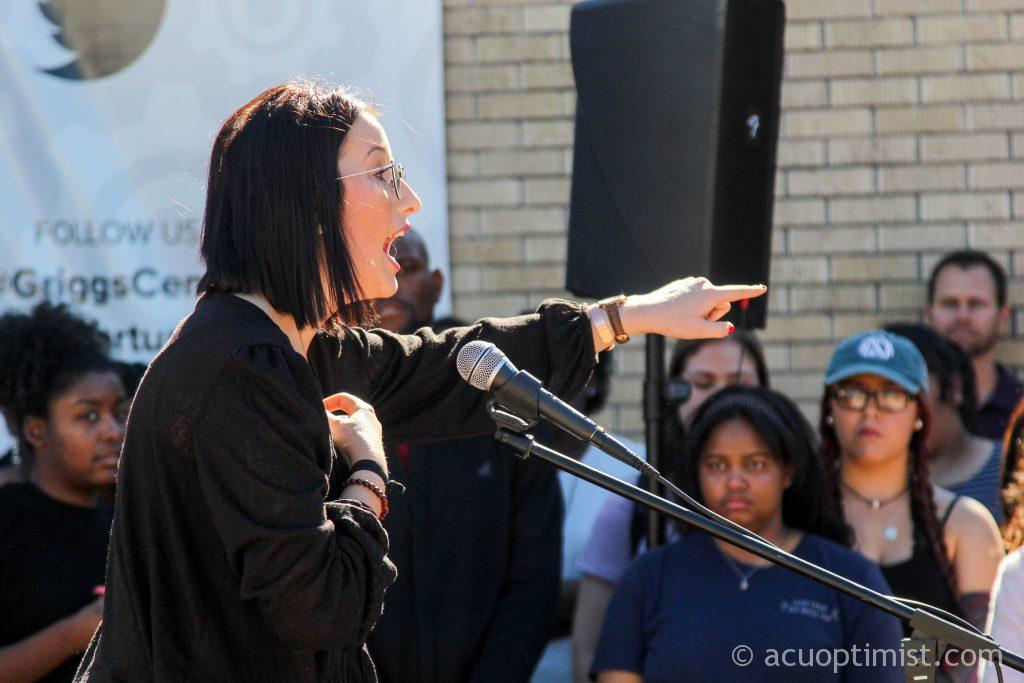The Students’ Association passed a resolution Wednesday for an amendment that will require multicultural representatives to be members of a group sponsored by the Office of Multicultural Affairs.
Caitlin Walker, junior class vice president, introduced the resolution to amend the SA Constitution and require multicultural representatives to be active in an OMA group at the time of their selection – just as representatives of the College of Arts and Sciences must be a member of that college. The resolution would “better the communication gap between the ACU Students’ Association and the Office of Multicultural Affairs (OMA) through the creation of a minority counsel, to be called Bridge,” according to the resolution document.
Last April, the student body voted to amend the SA Constitution to provide for “two representatives elected from and by students participating in university-sponsored Multicultural special interest clubs and organizations.” Anyone could run for the office, but once in office, they would be required to be involved in an OMA group, said Abraham Enriquez, SA executive vice president. OMA groups include the International Students Association, the African Students Association, the Black Students Association, Hispanos Unidos, Third Culture Kids and the Chinese Students’ and Scholars’ Association.
Requiring multicultural representatives to be involved in an OMA group could help the representatives be more experienced and knowledgable about what OMA groups need, Walker said. During the spring budget meeting, Christi Lim, president of the International Students Association, said she had trouble communicating with her representative while trying to negotiate funding for the International Food and Fashion Festival.
“Our representative, the multicultural representative, she was pretty new, ” Lim said. “When she tried to make amendments and stuff she said it was her first time doing that and she was pretty shaky on stuff. I kind of just felt like the representatives should have more experience.”
The current multicultural representatives include Elyssa Molina and Olive Tuyishimire.
The resolution originally was presented on Feb. 8 but failed to pass. Enriquez said Walker presented a packet that was confusing to many Congress members because it included more information than the resolution included. Because the resolution did not pass, Walker and the SA executive cabinet sent a survey to Congress members to learn why members abstained or voted against the resolution.
“It was more my demeanor,” Walker said. “I didn’t approach it in Congress as best as I could. I could’ve answered people’s questions better, I could’ve been more calm.”
Enriquez, junior political science major from Lubbock, said Congress members wrote on the survey that Walker’s presentation had too much information and Congress didn’t have enough time to consider before voting. Walker said after reading the survey results, she created a new presentation but made no changes to the resolution.
“I re-appealed it to show that I didn’t give up,” said Walker, junior child and family services major.
She presented the resolution again on Wednesday, and Congress put it to a silent vote using an online poll.
“When you’re in a group and someone says, ‘Anyone voting against this?’ you just feel like you can’t,” Enriquez said. “So I think silent voting is the best thing when it comes to controversial issues like this.”
Congress has not conducted a silent vote in the past two years, Enriquez said, and usually members vote by raising their hands. He said silent votes will be used again in the future for controversial issues.
The amendment will be voted on by the student body in the April elections.
“If it’s difficult for student leaders who are Congress members to kind of get what’s going on, we’re not so sure the entire student body is going to react the same way,” Enriquez said.
He said Walker will have to work on how the resolution is presented to the student body so students can understand what they are voting on.

